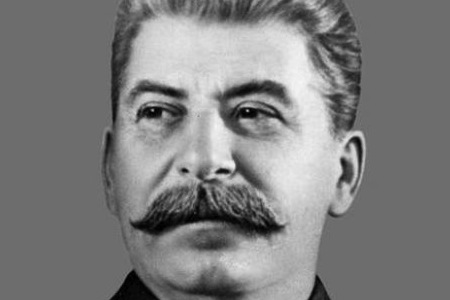A Chilling New Look at Anti-Semitism in Stalin’s Russia

The Twenty-Seventh Man
New York Public Theater
425 Lafayette Street
New York, N.Y.
Three Jewish writers are thrown into a dark, dank cell in a Russian prison in the 1950s on the order of Joseph Stalin, the country’s strongman dictator. They do not know anything about there situation except that they are three of twenty-six other Jewish writers and poets, who have been jailed on mysterious charges.
As they listen to each other’s stories, they begin to suspect that one of them is an informant for the Soviet secret police, placed in the cell to gain damaging information to be used against them in their trial. Then, without warning, a fourth prisoner, the twenty-seventh man in the group, is thrown into the cell with them. He is Pinchas Pelovitz, a naïve, friendly young man who has never published anything and thinks he was arrested because he had photos of naked women stashed in one of his books.
The play then takes off as the Jewish prisoners wonder who the mole is and why they were arrested. Stalin, writer Vasily Korinsky reminds all, was responsible for the building of Jewish theaters and funding Jewish publications. Why would he now turn on the Jewish writers? It made no sense.
In the middle of the drama, Korinsky is hauled before a secret policeman who tries to get information out of him on Pelovitz, whom, he said, didn’t seem to do anything wrong. If Korinsky will just condemn the young man, Korinsky will be freed and sent home. If not, not only will he be booted back into the cell, but the secret police might start investigating his wife. After all, she must have done something wrong, no?
The four writers talk and talk and talk about the oppression of the Jews in Russia and how, somehow, they will all be exonerated. Korinsky gives many colorful speeches, as does an old writer, Yevgeny Zunser. Bretzky, a great Jewish poet, argues that he had been to America, raised money for Stalin, and then returned home. What did he do wrong?
In the end, they all face the chilling realization that in the Soviet Union, you did not have to do anything wrong to be arrested. Remember the familiar charges, "crimes against the people"?
The play has an explosive end, one that you sort of figure out, and then you know exactly how Stalin felt about the Jews.
The play is a haunting and provocative look at anti-Semitism in Russia under Stalin by Nathan Englander, who first penned the tale as a short story based on the actual arrest and execution of thirteen writers just after World War II dubbed “The Night of the Murdered Poets.” Many incidents in the play are based directly on the slaughter of artists by Stalin’s henchmen from 1948 to 1952. The problem with the play though, is that it really does not go anywhere. When the police official harshly interviews Korinsky you think the plot is going to take off, but it doesn't. The point of the play, hammered over and over again -- anti-Semitism -- is unmistakable. Englander presents more of a colorful forum or debate on the topic than a play, and it has little action.
Director Barry Edelstein does a decent job of driving home the theme of the play and the special effects and sounds of the prison are eerie. Edelstein gets fine performances form Chip Zien as Korinsky, Ron Rifkin as Zunser, Noah Robbins as Pelovits, Daniel Oreskes as Bretzky, with Byron Jennings as the sinister policeman and Happy Anderson as a burly and frightening prison guard. The story is thought-provoking enough. The Twenty-Seventh Man needs a lot more action and drama, though, to succeed. It isn’t there.
PRODUCTION: Produced by the Public Theater. Sets: Michael McGarty; Costumes: Katherine Ruth, Lighting: Russell Champa; Sound: Darron West; Fight Director: Thomas Schall. The play is directed by Barry Edelstein.
